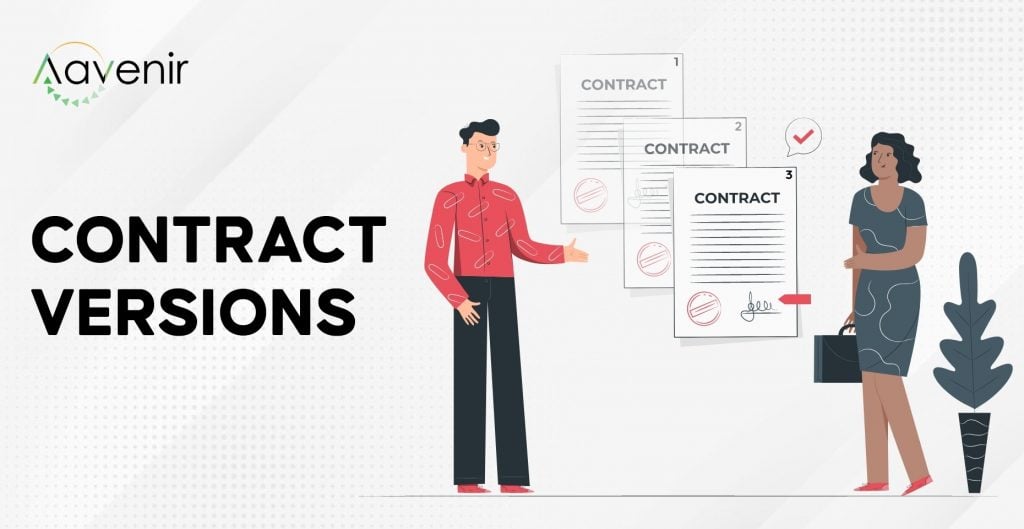What are Contract Versions and How Does Contract Version Control Work?
Contract Versions are used to track and compare changes between contracting parties and provide a common reference for discussion between parties.

Contract Lifecycle Management (CLM) relies heavily on version control. It’s critical to know whether the version of an agreement you are dealing with is correct, whether it is the latest iteration, the final version, or a previous one. Working with the incorrect version of a contract without realizing it can substantially influence an organization, resulting in unexpected or missed contractual obligations. Either scenario can have a detrimental impact on a company’s bottom line.
Why are Contract Versions Important?
Most of you must have experienced a lot of inevitable back and forth during contract negotiations and drafting, as each side argues for including or excluding specific terms and conditions. When the contract begins to take textual shape, the endless round of suggestions and modifications can become tough to keep track of and recall. Therefore, it is important to have an automated contract version control plan.
Mitigate Contract Amendment Risks with Contract Automation on ServiceNow>>
Who Benefits from Contract Versions?
Version control is not a new concept and is frequently used by legal, sales, and procurement teams across industry verticals. At the same time, managing versions efficiently and effectively has always been crucial when it comes to business contracts. While document storage tools such as SharePoint or OneDrive provide version control, they lack the rigor required for contract administration, not to mention the closely integrated contract assembly, workflow, review, and analytic functionalities of an advanced CLM solution.
Benefits of Version Control in a CLM Solution
The primary benefits of version control functionality within a CLM Solution involve:
- Establishing and maintaining consistent document naming conventions
- Keeping track of redlined changes, comments, and discussions about a contract to meet audit requirements
- Instilling confidence in your company and other parties to your contracts because of transparency
- Comparing documents to see if your company made changes without proper redlining
- Keeping an audit trail of who made changes to a contract
- Safeguarding individual documents from being saved over
- Providing visibility into a contract’s evolution to expedite future contract negotiations by identifying how terms were clarified or changed to get an agreement signed


